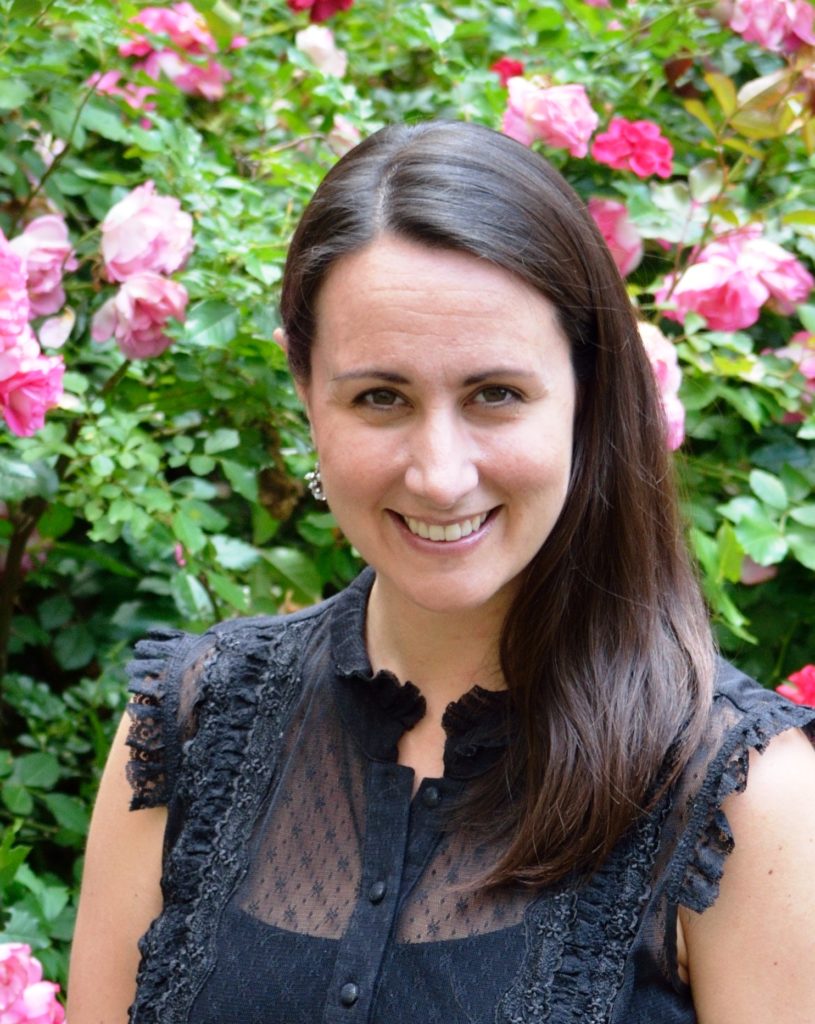Seguin-Fowler receives Henrik L. Blum Award for Excellence in Health Policy
Texas A&M AgriLife Research professor recognized for public health policy, program work
The 2020 Henrik L. Blum Award for Excellence in Health Policy has been awarded to Rebecca Seguin-Fowler, Ph.D., associate director of Texas A&M AgriLife Research and associate professor in Texas A&M’s College of Agriculture and Life Sciences Department of Nutrition and Food Science, Bryan-College Station.
“Dr. Seguin-Fowler is renowned nationally and internationally for her work in public health policy and evidence-based programs,” said Patrick J. Stover, Ph.D., vice chancellor of Texas A&M AgriLife, dean of the College of Agriculture and Life Sciences and director of Texas A&M AgriLife Research. “Her experience in mobilizing communities and building initiatives with health educators, particularly those benefitting residents of low-income and underserved areas, has improved the quality of life for innumerable individuals in Texas, the U.S. and several foreign countries.”
The award was presented through the Community Health Planning and Policy Development section of the American Public Health Association at its virtual annual meeting on Oct. 25. It recognized Seguin-Fowler for her excellence, creativity and innovation in the development and implementation of health policy.
Research on community-based nutrition and health behaviors
Seguin-Fowler serves as chief scientific officer for Healthy Texas, leading and fostering closer integration of AgriLife Research and Texas A&M AgriLife Extension Service efforts for improved statewide health and wellness.
A public health scientist and registered dietician with expertise in community-based nutrition and physical activity intervention research, Seguin-Fowler works on topics that include behavioral theory and health communications.
She is also interested in the context in which people develop, change and maintain health behaviors. These interests are reflected in her research, which focuses on understanding how people’s social, food and physical activity environments influence behavior changes in at-risk populations and settings, such as low-income families and rural communities.
Seguin-Fowler has co-developed comprehensive curricula and trainings for evidence-based health promotion programs to benefit midlife and older women. To date, more than 4,000 health educators in 48 states have been trained to implement these community-based physical activity and nutrition programs in predominantly non-urban areas.
Innovating public health policy for women, children
In her award nomination, Seguin-Fowler was lauded for her ability to develop system changes to improve public health, particularly to benefit women and children. Nominators also praised her work to improve leadership and capacity-building within her programs to help underserved populations achieve health equity.
Her programs have been disseminated through almost every U.S. state as well as in Canada, Mexico and Australia. These include exercise and nutrition programs, civic engagement and healthy lifestyle interventions, community assessment methods development, and food systems and food access projects. Collectively, these programs have helped thousands of participants improve their health.
As a result of changes due to the COVID-19 pandemic, she and her team have reached more than 50,000 people over the past several months by providing evidence-based community programs and training of program leaders via online formats.
The nomination also noted Seguin-Fowler’s “passion and commitment to at-risk populations through improved nutrition and physical activity has created an incredible impact at the individual and community level across the nation.”
Supporting food security efforts for low-income households
Seguin-Fowler’s current U.S. Department of Agriculture’s Agriculture and Food Research Initiative-funded project, Farm Fresh Foods for Healthy Kids, is examining whether cost-offset community supported agriculture for low-income households, along with tailored nutrition education, can improve dietary intake in children ages 2 to 12 and their caregivers. Early data indicates positive changes for families, including improvements in food security.
She is also leading a five-year multistate, multisite randomized trial funded by the National Cancer Institute to better understand the impacts of civic engagement on population health among rural residents.
“I’m so very honored to receive the 2020 Henrik L. Blum Award,” Seguin-Fowler said. “I want to thank those who supported my nomination, including my team and colleagues at Tufts University, Fred Hutchinson Cancer Research Center, Group Health Research Institute, Cornell University and Texas A&M AgriLife, as well as my family. In particular, I wish to thank Miriam Nelson, Andrea LaCroix, Patrick Stover, Susan Ballabina and the many cooperative extension agents and program participants for more than 20 years of inspiration, encouragement and support.”
She said the most inspirational part of her work is hearing back from participants about the ways her programs have impacted their lives.
“They have regained strength or abilities they’d lost, adopted new dietary habits that eliminated the need for certain medications, and taken charge of their own health and habits,” she said. “From there, they achieved a sense of empowerment about their own health and how they can be a positive catalyst for change for their friends, family and community.”
Other recognition and awards for her work
Among the other awards Seguin-Fowler has received over her career are the Mead Johnson Award from the American Society for Nutrition, the Citation Abstract Excellence Award from the Society of Behavioral Medicine Annual Meeting and Scientific Sessions, and a Career Development Award from the National Heart, Lung and Blood Institute of the National Institutes of Health.
Seguin-Fowler received her bachelor’s degree in clinical exercise physiology from Boston University. She earned her master’s degree in nutrition communication and a doctorate in food policy and applied nutrition from Tufts University in Boston.



